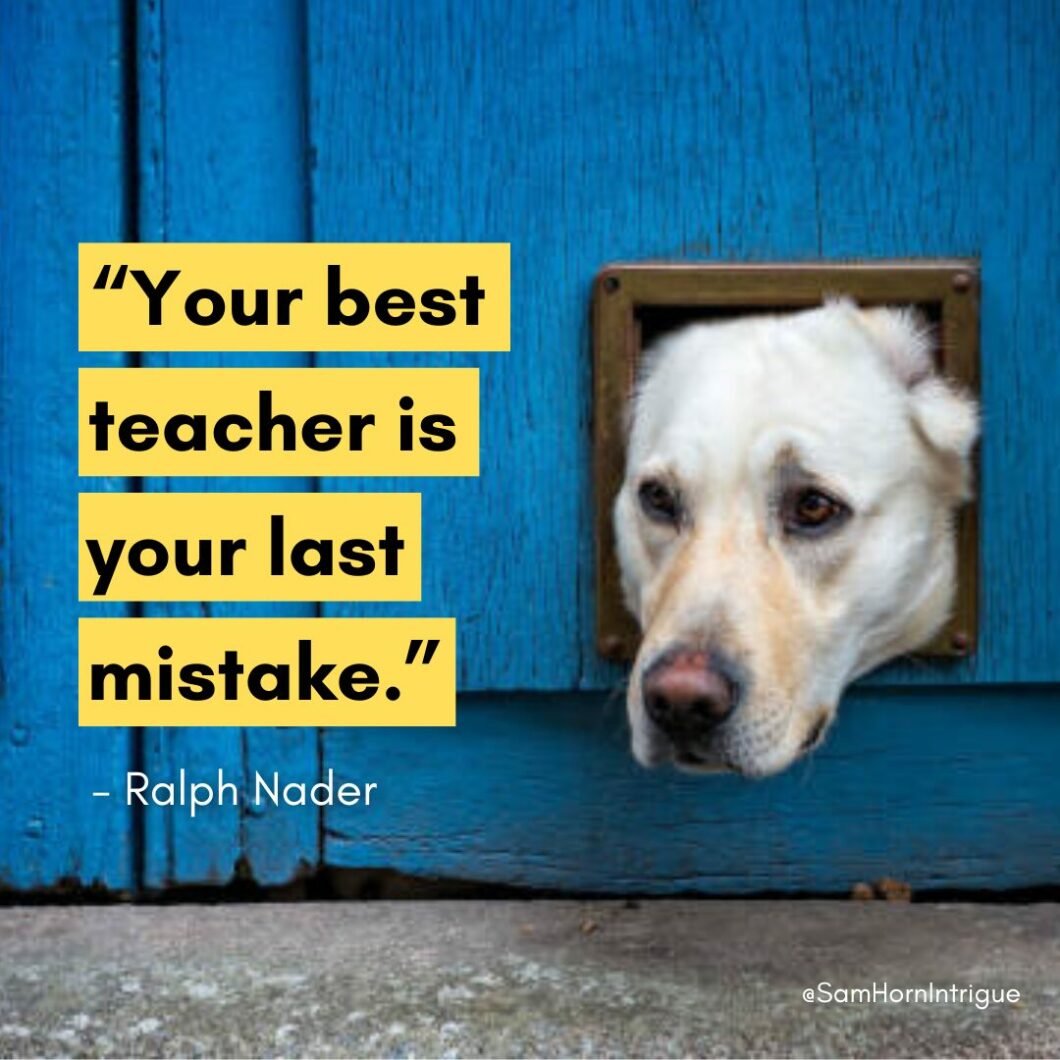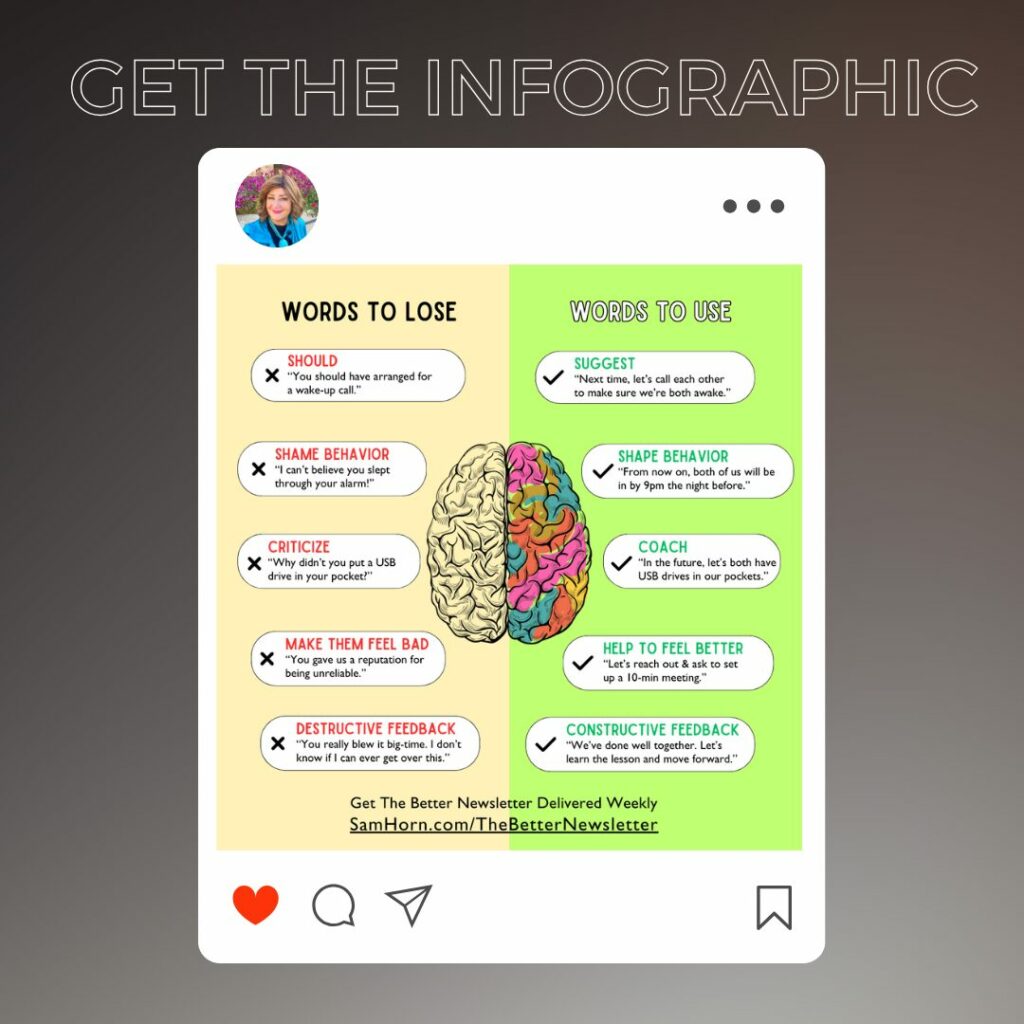Years ago, I had the privilege of working for Rod Laver (one of the greatest tennis players of all time.) One day after our national tennis camp, Rod asked if I’d like to “hit for a bit,” which was his way of rewarding me for weeks of hard work.
Rocket (his nickname) made me work for every point, running me side to side.
Finally, he (intentionally?) hit a weak lob, which set me up for an easy overhead. In my eagerness, I committed a cardinal sin and looked where I was going to put the ball instead of keeping my eyes on the ball.
Well, I didn’t just mishit the ball — I took a mighty whiff and missed it entirely. It was so embarrassing, I started should-ing all over myself: “I should have kept my head up. I know better than that! What a stupid mistake.”
Rod, known for his sportsmanship, called me over and said something so profound, I remember it to this day:
“Sam, champions never use the word should. If they make a mistake, they immediately switch their attention to how to get it right the next time.”
He’s right. The word should serves no good purpose, because in this context it pertains to the past. Do you know anyone who can undo the past?
Which is why, when someone makes a mistake (and that includes you), it’s best to follow Rocket’s advice and focus on how to get it right next time.
That’s the way to be a coach instead of a critic and watch all of your relationships get better because of this one simple change.
ACTION
-
How about you? Are you or have you recently been should-ing on someone you love (yourself included?)
- If so, how about giving yourself (& others) a little grace?!? Click here to view my helpful Words to Lose – Words to Use infographic for quick reminders on how to shape behavior instead of shame it.


